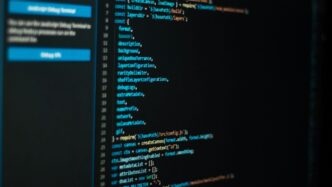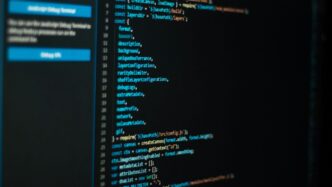Getting good at SQL for interviews can feel like a puzzle. You know the basics, but putting them together in a way that impresses people is another thing entirely. Luckily, there are great tools out there to help you practice and get better. This guide is all about using HackerRank SQL practice to build your skills, from the simple stuff to the more complicated problems you might see in a real job interview.
Key Takeaways
- HackerRank offers a wide range of SQL problems, letting you filter by difficulty and topic to target your learning.
- Build a solid foundation by starting with basic queries and gradually moving to more complex SQL concepts.
- Practice common SQL scenarios found in interviews, like JOINs and aggregate functions, and be ready to explain your approach.
- Engage with diverse exercises, including real-world data and business case studies, to see how SQL is used in practice.
- Use the feedback provided on HackerRank and learn from other users’ solutions to fix errors and improve your code.
Leveraging HackerRank for SQL Practice
So, you want to get good at SQL, huh? And you’ve heard HackerRank is the place to do it. It really is a solid spot for getting your SQL skills sharpened up, especially if you’re prepping for interviews or just want to feel more confident with databases. They’ve got a ton of questions, and the best part is you can sort through them.
Understanding HackerRank’s SQL Suite
HackerRank isn’t just a random collection of problems; they’ve organized their SQL section pretty well. You can find challenges that cover everything from basic SELECT statements to more involved topics like JOINs and aggregate functions. It’s a pretty good way to see what you know and what you need to work on.
Filtering Challenges by Difficulty and Topic
This is where HackerRank really shines. You don’t have to just jump into the deep end. You can filter by difficulty – easy, medium, or hard. This lets you build up your skills gradually. Plus, you can narrow it down by topic. So, if you’re struggling with JOINs, you can just do a bunch of JOIN problems until they make sense. It’s a much smarter way to practice than just randomly picking questions. You can even check out advanced SQL interview questions if you’re feeling brave.
Utilizing HackerRank Skills Certification
Once you feel like you’ve practiced enough, HackerRank offers skills certification tests. These are timed assessments that really put you on the spot, kind of like a real interview. They have different levels, like SQL Basic, Intermediate, and Advanced. Passing these can give you a good confidence boost and a tangible way to show what you’ve learned. It’s a good way to see how you perform under pressure.
Structured Approach to HackerRank SQL Practice
Alright, so you’ve decided to really get a handle on SQL, and HackerRank is your chosen battleground. That’s a solid move. But just jumping into random problems isn’t the best way to go. You need a plan, a way to build your skills step-by-step.
Building Foundational Querying Skills
Before you tackle those super tricky problems, you gotta get the basics down. Think of it like learning your scales before playing a concerto. Start with simple SELECT statements, get comfortable with the WHERE clause for filtering, and then move on to GROUP BY for summarizing data. HackerRank has plenty of beginner challenges that focus on these core concepts. It’s all about getting that muscle memory for writing clean, efficient queries. Don’t skip this part; a shaky foundation means the whole structure will be wobbly later on.
Progressing Through Complex SQL Concepts
Once you’re feeling good about the basics, it’s time to level up. This is where you start bringing tables together with JOIN operations. Understanding different types of joins (INNER, LEFT, RIGHT, FULL) is super important. Then, you’ll want to get into subqueries, UNION statements, and maybe even some basic window functions. HackerRank organizes its challenges well, so you can usually find sections dedicated to these more advanced topics. The key here is to not get discouraged if a problem seems tough at first. Break it down, think about the logic, and remember that each solved problem builds your confidence and skill.
Developing a Consistent Practice Routine
This is probably the most important part, honestly. You can’t just practice SQL once a month and expect to be good. You need to make it a habit. Try to set aside a specific time each day or week to work through HackerRank problems. Even 30 minutes a few times a week can make a huge difference. It’s better to do a little bit consistently than to cram a lot right before an interview. Think about it like training for a marathon; you wouldn’t just run 20 miles the day before, right? You build up to it. Consistency is what turns knowledge into actual skill, and you can find some great interview questions on HackerRank’s SQL practice to keep you sharp.
Mastering Common SQL Interview Challenges
So, you’ve been practicing your SQL queries on HackerRank, which is great. But what about the actual interviews? They often throw curveballs, testing not just if you know the syntax, but if you can actually think through a problem using SQL. It’s like learning to cook – you can follow a recipe, but can you improvise when you’re missing an ingredient?
Identifying Frequently Tested SQL Scenarios
Interviews tend to circle back to a few core concepts. You’ll almost certainly see questions about joining tables, filtering data, and summarizing information. Think about scenarios like finding duplicate records, calculating running totals, or identifying the top N items in a category. Being able to quickly recognize these patterns is half the battle. For instance, if you’re asked to find customers who haven’t placed an order in the last six months, you’ll need to combine date filtering with a join or a subquery. It’s not just about knowing JOIN or WHERE, but knowing when and how to use them effectively. Understanding how cyber threats can impact data security, like through social media exploitation, also highlights the importance of robust data handling practices in any role [c6cb].
Practicing JOINs and Aggregate Functions
These are the bread and butter of SQL interviews. You’ll be expected to join multiple tables – think customers, orders, and products – and then pull out specific information. Aggregate functions like COUNT(), SUM(), AVG(), MIN(), and MAX() are used with GROUP BY to summarize data. A common task is to find the total sales per product category. You might write something like this:
SELECT
pc.CategoryName,
SUM(od.Quantity * od.UnitPrice) AS TotalSales
FROM
OrderDetails od
JOIN
Products p ON od.ProductID = p.ProductID
JOIN
ProductCategories pc ON p.CategoryID = pc.CategoryID
GROUP BY
pc.CategoryName
ORDER BY
TotalSales DESC;
Practice different types of joins (INNER, LEFT, RIGHT, FULL OUTER) and understand when each is appropriate. Also, get comfortable with HAVING clauses, which filter groups after aggregation, just like WHERE filters individual rows before aggregation.
Explaining Your SQL Thought Process
This is where many people stumble. It’s not enough to just write a query that works. The interviewer wants to know how you got there. Talk through your steps. Start with what you want to achieve, identify the tables you need, figure out how they connect, and then build your query piece by piece. Explain why you chose a LEFT JOIN over an INNER JOIN, or why you used a subquery instead of a CTE (Common Table Expression). Being able to articulate your logic demonstrates a deeper understanding than just spitting out code. It shows you can problem-solve and communicate technical ideas clearly.
Enhancing SQL Proficiency with Diverse Exercises
Just learning the basic commands isn’t really enough, you know? To get good at SQL, you’ve got to actually use it on different kinds of problems. It’s like learning a language – you can study grammar all day, but until you’re talking to people and trying to order food, you’re not really fluent.
Exploring Real-World Data Scenarios
Working with sample datasets is a great way to start. Think of them as practice playgrounds. You can mess around with the data, try out different queries, and see what happens. It’s how you start to get a feel for how data is structured and how to pull out what you need.
- Start simple: Just select all the data you can see.
- Connect tables: Try joining different pieces of information together, like matching customer orders to customer details.
- Count things: Use functions to figure out totals, averages, or how many times something appears.
Platforms like SQLZoo offer these kinds of interactive datasets, which makes it less intimidating to just jump in and start querying.
Analyzing Business Case Studies with SQL
Beyond just playing with data, looking at how SQL is used in actual business situations is super helpful. Case studies show you the ‘why’ behind the queries. You see how companies use SQL to figure out what customers want, manage their stock, or make more money.
- Inventory: How can SQL predict when to order more products?
- Marketing: How do you group customers based on what they buy to send them better ads?
- Finance: How do you use SQL to track sales and find out which products are making the most profit?
Seeing these examples helps you connect the dots between writing a query and solving a real business problem.
Engaging with Interactive Datasets
Sometimes, you need something a bit more hands-on than just reading about it. Interactive exercises, where you write code and get immediate feedback, are fantastic for building muscle memory. You learn by doing, and when you get something wrong, the platform can often tell you why, which is way better than just staring at an error message.
This kind of practice helps you get comfortable with the syntax and also starts to build your problem-solving skills. You’ll find yourself thinking about different ways to get the same answer, which is exactly what you need for interviews and for the job itself.
The Importance of Feedback in SQL Learning
So, you’ve been grinding away on HackerRank, tackling those SQL problems. That’s great! But just solving problems isn’t quite enough, is it? You need to know if you’re actually getting better. That’s where feedback comes in. It’s like having a coach watch you play a sport – they can spot things you miss.
Utilizing Real-Time Code Feedback
HackerRank is pretty good about this. When you submit a query, it doesn’t just say ‘correct’ or ‘incorrect.’ It often tells you why. Maybe your query ran but gave the wrong answer, or perhaps it timed out because it was too slow. Paying attention to these immediate responses is key to fixing mistakes before they become habits. It’s like getting instant corrections on your form when you’re learning to lift weights; you adjust right away.
Learning from Community Solutions
Sometimes, you get stuck. You’ve tried a few things, and nothing works. HackerRank usually has a discussion section for each problem. This is gold! You can see how other people solved the same challenge. You might find a super clever way to write a query that you never would have thought of. It’s not about copying, but about understanding different approaches. You might see someone use a window function where you used a subquery, and it makes your code cleaner or faster. It’s a fantastic way to pick up new tricks and see how experienced folks think.
Identifying and Rectifying SQL Errors
What kind of errors do people usually make? Well, common ones include:
- Syntax Errors: Simple typos, missing commas, or incorrect keywords. These are usually caught by the platform immediately.
- Logic Errors: Your query runs, but it doesn’t produce the right results. This is trickier. It means your understanding of the problem or SQL itself might be a bit off. Maybe you joined tables incorrectly or didn’t filter the data properly.
- Performance Issues: Your query works, but it’s too slow, especially with large datasets. This often happens with inefficient joins or unnecessary subqueries.
When you get feedback, whether it’s from the platform or from looking at community solutions, take a moment to figure out what went wrong. Did you misunderstand the WHERE clause? Were you supposed to use an INNER JOIN instead of a LEFT JOIN? Pinpointing the exact error helps you avoid it next time. It’s all part of building that solid foundation.
Continuous Learning in the SQL Landscape

So, you’ve gotten pretty good at SQL, huh? That’s awesome. But here’s the thing: SQL isn’t a one-and-done kind of skill. The world of data keeps changing, and staying sharp means you’ve got to keep learning. It’s like anything else, really; you don’t just stop practicing because you know the basics.
Exploring Advanced SQL Features
Once you’re comfortable with the usual stuff, there’s a whole lot more to SQL. Think about things like window functions – they can really simplify complex calculations that would otherwise take ages to figure out. Or maybe stored procedures and triggers? These let you automate tasks and enforce data rules directly in the database. It’s not just about pulling data anymore; it’s about making the database work smarter for you. You can find great examples of these on sites like W3Schools, or even try building a small personal project, like a database for a fake online store, to really get a feel for how these advanced features work in practice.
Staying Updated with SQL Best Practices
Keeping up with SQL means knowing the current best ways to do things. This isn’t just about writing queries that work, but writing them efficiently and securely. For instance, how you structure your JOIN clauses can make a big difference in performance. Also, understanding indexing strategies can speed up your queries dramatically. It’s worth checking out blogs from SQL experts or joining online communities like Stack Overflow. You can learn a lot just by seeing how other people solve problems and what advice they give.
Leveraging SQL for Predictive Analytics
This is where things get really interesting. Your SQL skills can actually be a stepping stone into more advanced areas like predictive analytics. Tools exist now that let you use your SQL knowledge to build machine learning models without needing to be a coding wizard. Imagine analyzing user behavior in an app – you could use SQL to figure out which features keep people coming back. Then, you could use that insight to predict who might leave and try to keep them. Platforms that offer free trials can let you experiment with this, turning your data querying abilities into actual predictions about the future. It’s a pretty cool way to see your SQL skills have a bigger impact.
Wrapping Up Your SQL Journey
So, you’ve gone through the basics and maybe even some of the trickier stuff. Getting good at SQL takes time, and honestly, it’s mostly about just doing it. Keep practicing on HackerRank or whatever platform works for you. Don’t be afraid to try harder problems, and definitely look at how other people solve things – you can learn a lot that way. Remember, knowing SQL is a big deal for a lot of jobs, so sticking with it will pay off. Just keep at it, and you’ll get there.
Frequently Asked Questions
Why is learning SQL so important for job interviews?
SQL is like a secret code that helps computers understand and sort information. Lots of jobs, especially those working with data like analyzing it or building computer programs, need people who know this code. Being good at SQL makes you a more valuable candidate for these jobs because you can easily find and use the information companies need.
How long does it usually take to get good at SQL for interviews?
It really depends on how much you practice! Some people can learn the basics in just a few weeks. If you really focus on the kinds of questions asked in interviews, you might feel comfortable in about one or two months. The key is to practice a lot!
What are the best ways to learn SQL fast?
To learn SQL quickly, the best thing to do is practice all the time with real examples of data. Use websites that let you try out commands right away. Join online groups where people talk about coding, and try to solve problems that are like the ones you’ll see in interviews. It’s like practicing a sport – the more you play, the better you get.
Are there specific SQL topics I should really focus on for interviews?
Yes, definitely! Make sure you understand how to connect different pieces of information together (called JOINs), how to ask questions within questions (subqueries), how to group data (GROUP BY), and how to use special functions that count or average things (aggregate functions). Knowing these well will help you a lot.
Can I learn SQL just by using websites and online stuff?
Online resources are super helpful and there are tons of them! But it can also be good to read books about SQL, maybe join a class or workshop if you can, and talk to other people learning SQL. Getting different ideas from different places can make you understand it even better.
Do I need to know really advanced SQL for my first job?
For most entry-level jobs, knowing the basics really well is most important. You don’t usually need to know the super complicated stuff right away. Focus on understanding how to get data, put it together, and sort it. You can learn the more advanced parts as you get more experience on the job.














